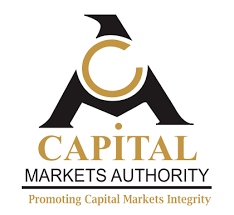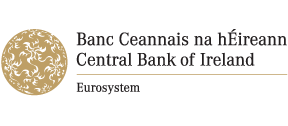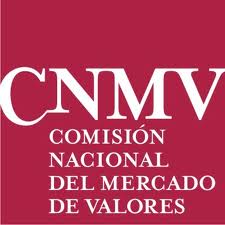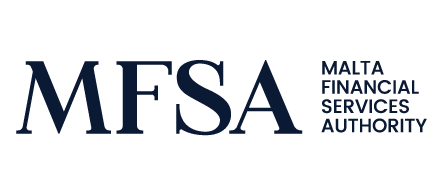Top 30 Forex Brokers & Prop Firms Regulators in 2025
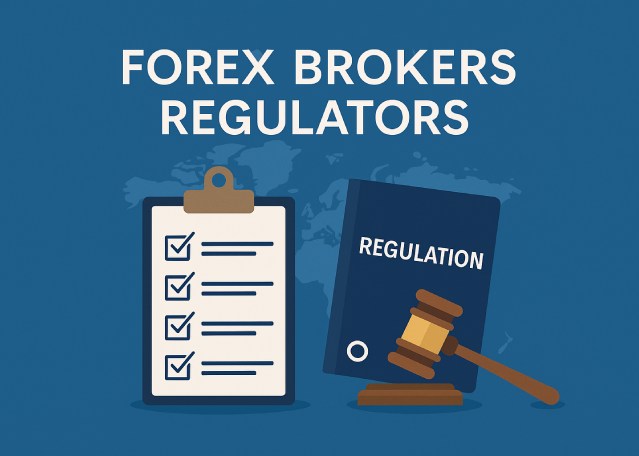
Why Forex Regulators Matter in Trading
In the world of financial trading — especially in the Forex industry and the proprietary trading (prop trading) space — the role of financial regulators cannot be overstated. A regulator is not just a formality or a stamp on a license. It is a critical institution that ensures financial companies operate legally, transparently, and in the best interest of their clients.
Protecting Traders’ Interests
One of the primary objectives of financial regulators is the protection of client funds. For example, many authorities require brokers to keep client deposits in segregated accounts, separate from the company’s operational funds. Some regulators also require brokers to participate in compensation schemes in case of insolvency. These protections significantly reduce the risk of fund loss for traders.
Preventing Fraud and Market Manipulation
Regulators fight against scams, insider trading, price manipulation, and other forms of dishonest behavior. When a broker is licensed by a reputable regulator (such as the FCA, CySEC, or ASIC), it means they must comply with strict transparency, reporting, and operational standards. This ensures that trade execution is fair and not manipulated in favor of the broker.
Dispute Resolution and Legal Support
When conflicts arise between a trader and a broker, regulators often provide a complaint resolution mechanism. In many jurisdictions, regulators have the authority to investigate claims and even order compensation for wronged clients. This gives traders a powerful layer of legal protection they wouldn't have in unregulated environments.
Reputation and Transparency
A broker licensed by a well-known regulator earns credibility not only with clients but also with financial institutions and liquidity providers. Operating under a respected license is a signal of trustworthiness and a long-term business approach. That’s why the best Forex brokers and prop firms pursue regulation — not only to comply with the law, but also to build trust and grow sustainably.
What’s Inside This Guide
In this article, we’ve compiled a list of 30 of the most important and widely recognized financial regulators in the world of Forex and proprietary trading. These organizations represent a wide range of regions — from the UK, EU, US, and Australia to offshore hubs and emerging markets — and play a crucial role in shaping the rules and standards of the global trading industry.
Forex & Prop Trading Regulators
1. Financial Conduct Authority (FCA)
Country: United Kingdom
The FCA is the UK's primary financial regulator, overseeing financial markets, brokers, and investment firms. It enforces strict standards for consumer protection and market integrity.
Contact information
Website: https://www.fca.org.uk
Email: [email protected]
Phone: +44 800 111 6768
2. Cyprus Securities and Exchange Commission (CySEC)
Country: Cyprus (EU)
CySEC is a well-known European regulator, popular among Forex brokers due to its balance of regulatory control and business-friendly environment. It ensures investor protection within EU guidelines.
Contact information
Website: https://www.cysec.gov.cy
Email: [email protected]
Phone: +357 22506600
3. Australian Securities and Investment Commission (ASIC)
Country: Australia
ASIC is a leading global regulator known for enforcing strict compliance and conduct standards. Its framework is highly regarded in the Forex and investment communities.
Contact information
Website: https://asic.gov.au
Email: [email protected]
Phone: +61 1300 300 630
4. Federal Financial Supervisory Authority (BaFin)
Country: Germany
BaFin is Germany’s independent financial regulator, known for its stringent enforcement and oversight of financial markets, including banks, insurers, and investment firms.
Contact information
Website: https://www.bafin.de
Email: [email protected]
Phone: +49 (0)228 41080
5. Securities Commission of The Bahamas (SCB)
Country: The Bahamas
SCB regulates the capital markets of The Bahamas. It provides flexible licensing and appeals to brokers servicing clients worldwide, while still maintaining a regulatory structure.
Contact information
Website: https://www.scb.gov.bs
Email: [email protected]
Phone: +1 (242) 397-4100
6. Financial Sector Conduct Authority (FSCA)
Country: South Africa
FSCA oversees financial institutions in South Africa, focusing on non-bank financial services. It’s respected in Africa and recognized by global brokers operating in the region.
Contact information
Website: https://www.fsca.co.za
Email: [email protected]
Phone: +27 12 428 8000
7. Dubai Financial Services Authority (DFSA)
Country: UAE (Dubai)
DFSA regulates financial services in the Dubai International Financial Centre (DIFC). It is a modern, globally respected regulator in the Middle East region.
Contact information
Website: https://www.dfsa.ae
Email: [email protected]
Phone: +971 4 362 1500
8. Capital Markets Authority (CMA)
Country: Kenya
CMA is the chief regulator of Kenya’s capital markets. It licenses and oversees brokers and funds, playing a vital role in East African financial regulation.
Contact information
Website: https://www.cma.or.ke
Email: [email protected]
Phone: +254 20 2264900
9. Financial Services Commission (FSC)
Country: British Virgin Islands, Mauritius
The FSC is an important offshore regulator providing licensing for Forex brokers, mutual funds, and other financial entities. Its frameworks are popular for international brokers.
Contact information
Website: https://www.bvifsc.vg
Email: [email protected]
Phone: +1 (284) 494-1324
10. Financial Services Authority (FSA)
Country: Seychelles, St. Vincent and the Grenadines
FSA provides regulatory oversight in several offshore jurisdictions. It’s frequently chosen by brokers targeting global markets with flexible structures.
Contact information
Website: https://fsaseychelles.sc
Email: [email protected]
Phone: +248 438 0800
11. Vanuatu Financial Services Commission (VFSC)
Country: Vanuatu
VFSC is the primary financial regulator in Vanuatu, overseeing non-banking financial institutions and international service providers. It is known for its accessible licensing process, making it a popular choice among Forex brokers looking for cost-effective entry into global markets.
Contact information
Website: https://www.vfsc.vu
Email: [email protected]
Phone: +678 22247
12. Securities and Commodities Authority (SCA)
Country: UAE
SCA ensures regulation and transparency in UAE's securities and commodities markets.
Contact information
Website: https://www.sca.gov.ae
Email: [email protected]
Phone: +971 800 722823
13. Securities and Futures Commission (HKSFC)
Country: Hong Kong
HKSFC is a key Asian regulator known for its strict financial oversight and high compliance standards across Hong Kong’s securities and futures markets.
Contact information
Website: https://www.sfc.hk
Email: [email protected]
Phone: +852 2231 1222
14. Emirates Securities and Commodities Authority (ESCA)
Country: UAE
ESCA regulates UAE financial and commodity markets and enforces investor protection laws within the Emirates financial system.
Contact information
Website: https://www.sca.gov.ae
Email: [email protected]
Phone: +971 800 722823
15. Securities and Exchange Regulator of Cambodia (SERC)
Country: Cambodia
SERC regulates Cambodia's capital markets, aiming to foster financial sector development and investor confidence in the country.
Contact information
Website: http://www.serc.gov.kh
Email: [email protected]
Phone: +855 23 885 745
16. Investment Industry Regulatory Organization of Canada (IIROC)
Country: Canada
IIROC oversees investment dealers and trading activity in Canada. It enforces financial integrity, transparency, and consumer protection across Canadian markets.
Contact information
Website: https://www.iiroc.ca
Email: [email protected]
Phone: +1 877 442 4322
17. Ontario Securities Commission (OSC)
Country: Canada
OSC is Canada's largest provincial regulator responsible for maintaining fairness, transparency, and confidence in Ontario's capital markets.
Contact information
Website: https://www.osc.ca
Email: [email protected]
Phone: +1 877 785 1555
18. Financial Industry Regulatory Authority (FINRA)
Country: United States
FINRA is a U.S. self-regulatory body responsible for overseeing brokerage firms and exchange markets. It enforces strong investor protection standards and operational transparency.
Contact information
Website: https://www.finra.org
Email: [email protected]
Phone: +1 301 590 6500
19. U.S. Securities and Exchange Commission (SEC)
Country: United States
The SEC enforces federal securities laws in the United States, focusing on fair market practices and investor protection through strict regulatory frameworks.
Contact information
Website: https://www.sec.gov
Email: [email protected]
Phone: +1 202 551 6551
20. Commodities and Futures Trading Commission (CFTC)
Country: United States
The CFTC oversees U.S. derivatives markets including futures, options, and swaps. It ensures transparency, integrity, and competitive markets in financial derivatives.
Contact information
Website: https://www.cftc.gov
Email: [email protected]
Phone: +1 202 418 5000
21. Swiss Financial Market Supervisory Authority (FINMA)
Country: Switzerland
FINMA regulates Switzerland’s banking, insurance, and financial sectors. It’s known for rigorous anti-money laundering controls and a strong focus on investor protection.
Contact information
Website: https://www.finma.ch
Email: [email protected]
Phone: +41 31 327 91 00
22. Autorité des Marchés Financiers (AMF)
Country: France
AMF supervises France’s financial markets, ensuring investor protection, market transparency, and compliance with EU financial directives.
Contact information
Website: https://www.amf-france.org
Email: [email protected]
Phone: +33 1 5345 6000
23. Central Bank of Ireland (CBI)
Country: Ireland
The CBI oversees monetary policy and financial regulation in Ireland. It also supervises MiFID-authorized Forex brokers and investment firms within the EU.
Contact information
Website: https://www.centralbank.ie
Email: [email protected]
Phone: +353 1 224 6000
24. Comisión Nacional del Mercado de Valores (CNMV)
Country: Spain
CNMV regulates Spain's securities markets, promoting investor protection and ensuring the integrity and transparency of financial operations.
Contact information
Website: https://www.cnmv.es
Email: [email protected]
Phone: +34 900 535 015
25. Commissione Nazionale per le Società e la Borsa (CONSOB)
Country: Italy
CONSOB is Italy's main financial market regulator, responsible for overseeing public companies, brokers, and investor protections across the country.
Contact information
Website: https://www.consob.it
Email: [email protected]
Phone: +39 06 847 761
26. Financial Markets Authority (FMA)
Country: New Zealand
The FMA regulates New Zealand’s financial markets and investment services, with a focus on fair treatment, disclosure, and compliance enforcement.
Contact information
Website: https://www.fma.govt.nz
Email: [email protected]
Phone: +64 4 472 9830
27. Financial Services and Markets Authority (FSMA)
Country: Belgium
FSMA regulates Belgium’s financial markets, ensuring transparency and protecting the rights of consumers and investors in financial services.
Contact information
Website: https://www.fsma.be
Email: [email protected]
Phone: +32 2 220 52 11
28. Swedish Financial Supervisory Authority (Swedish FSA)
Country: Sweden
The Swedish FSA (Finansinspektionen) supervises financial institutions and markets in Sweden, aiming to ensure financial stability and consumer protection.
Contact information
Website: https://www.fi.se
Email: [email protected]
Phone: +46 8 408 980 00
29. Danish Financial Supervisory Authority (Danish FSA)
Country: Denmark
The Danish FSA supervises Denmark’s financial institutions, enforcing conduct standards and ensuring the soundness of financial markets.
Contact information
Website: https://www.dfsa.dk
Email: [email protected]
Phone: +45 33 55 82 82
30. Malta Financial Services Authority (MFSA)
Country: Malta
MFSA is Malta’s single financial regulator, overseeing all financial activity including banking, investment services, insurance, and fintech companies.
Contact information
Website: https://www.mfsa.mt
Email: [email protected]
Phone: +356 2144 1155
Frequently Asked Questions (FAQ)
1. Why should traders choose brokers regulated by a financial authority?
Choosing a regulated broker is first and foremost a matter of safety. Regulators require brokers to separate client funds from operational accounts, follow strict reporting procedures, and ensure fair order execution. This protects traders from fraud, abusive practices, and gives them a clear legal path in case of disputes.
2. Which regulators are considered the most reliable in the world?
The most reputable financial regulators include:
- FCA (United Kingdom)
List of FCA-regulated Forex brokers - ASIC (Australia)
List of ASIC-regulated Forex brokers - CySEC (Cyprus)
List of CySEC-regulated Forex brokers - BaFin (Germany)
List of BaFin-regulated Forex brokers - SEC and CFTC (United States)
List of SEC/CFTC-regulated Forex brokers
These authorities are known for their strict regulatory frameworks, transparency, and high levels of investor protection.
3. Can brokers with offshore licenses like VFSC or FSA be trusted?
Offshore regulators such as VFSC (Vanuatu) or FSA (Seychelles) offer more lenient regulation and lower barriers to entry. They’re popular among brokers due to fast and cost-effective licensing. However, trader protection is generally weaker, so it’s advisable to work only with offshore brokers that have a solid reputation and clear, transparent terms.
4. What should I do if I have a dispute with my broker?
If your broker is regulated, you can:
- First, try to resolve the issue directly with the broker’s support team.
- If unresolved — file an official complaint with the regulator that issued the license.
Regulators can investigate the issue and, in some cases, enforce compensation for clients if rules were violated.
5. How can I verify if a broker is truly licensed?
Go to the regulator’s official website (e.g., fca.org.uk, cysec.gov.cy, etc.) and use their “Firms Register” or “Licensed Entities” search tool. Enter the broker’s name or license number.
Don’t rely solely on logos or license claims shown on the broker’s website — always double-check directly with the regulator.










